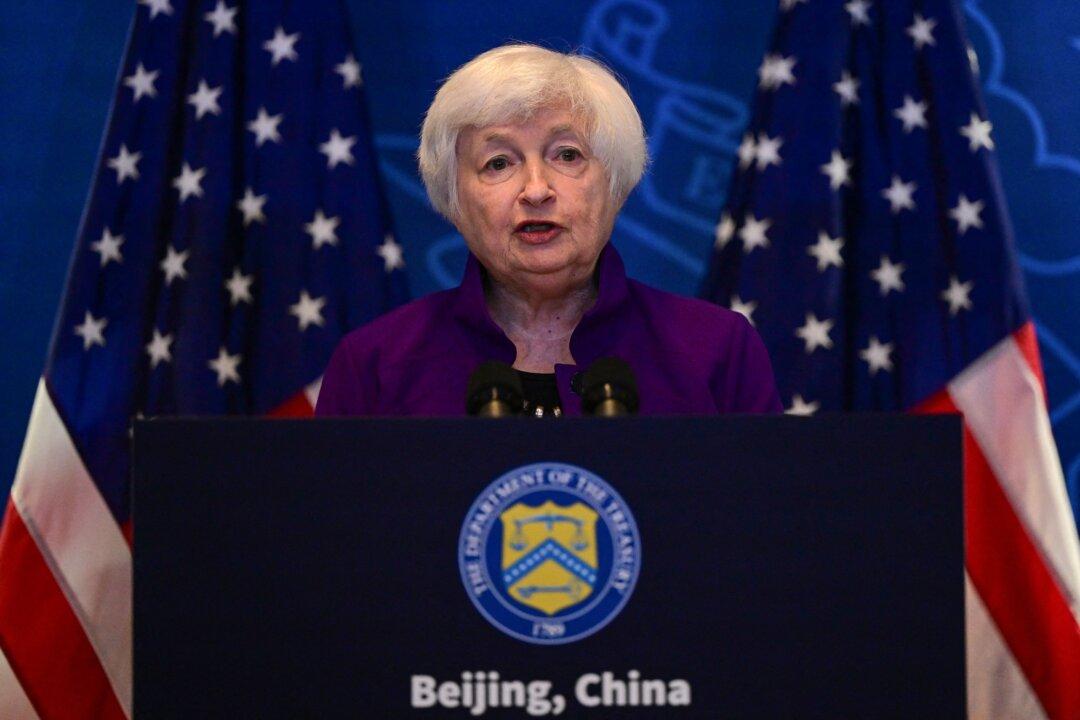Treasury Secretary Janet Yellen said that she told Chinese officials during her four-day trip to Beijing that the United States won’t allow its national security to be compromised.
In an interview with CBS on July 9, Ms. Yellen said, “An objective of my trip was to explain that national security is something that we can’t compromise about and we will protect, and we will do so even if it harms our own narrow economic interests.”





